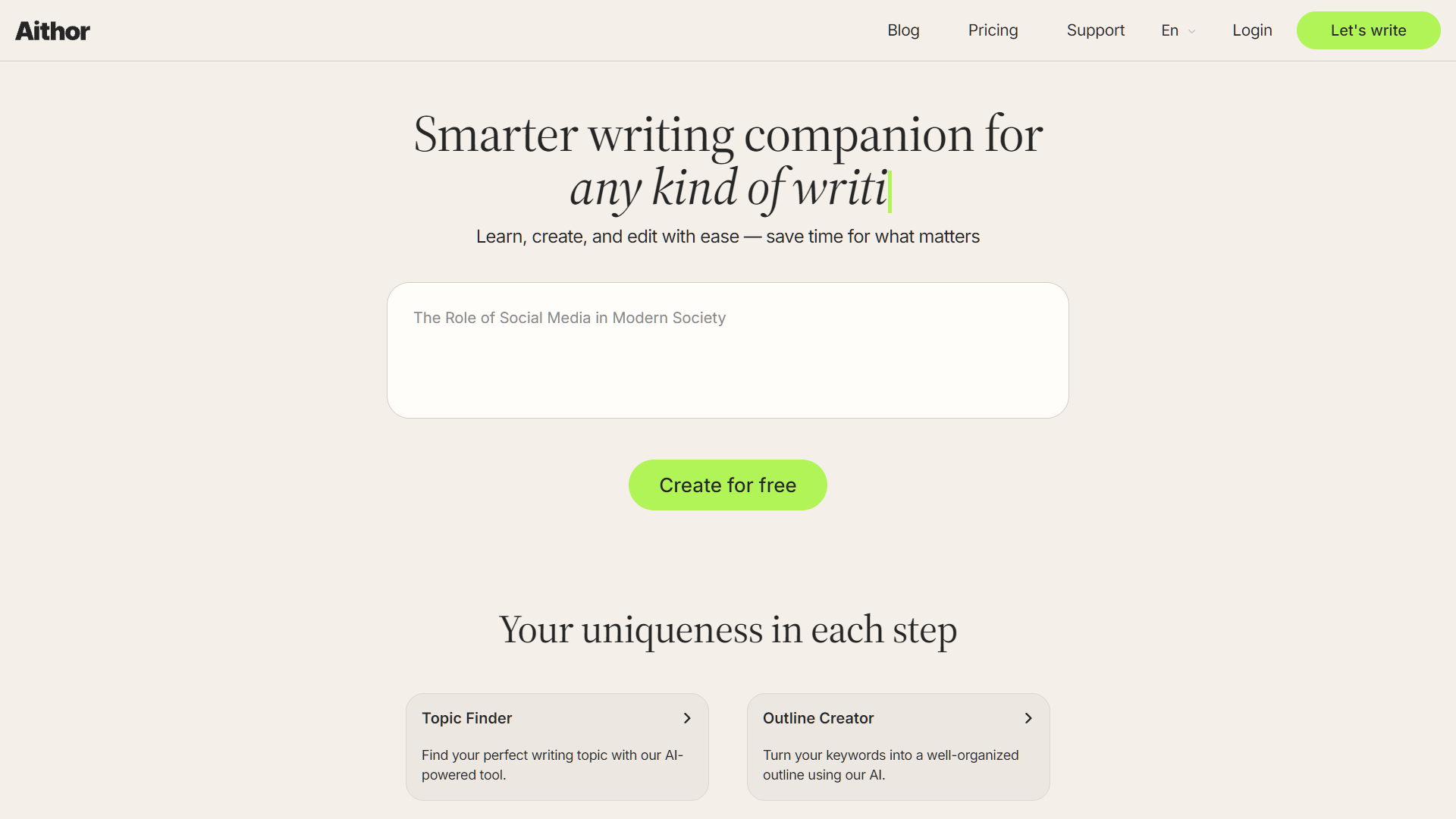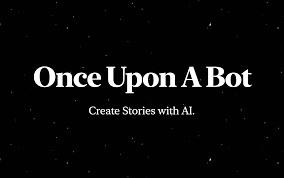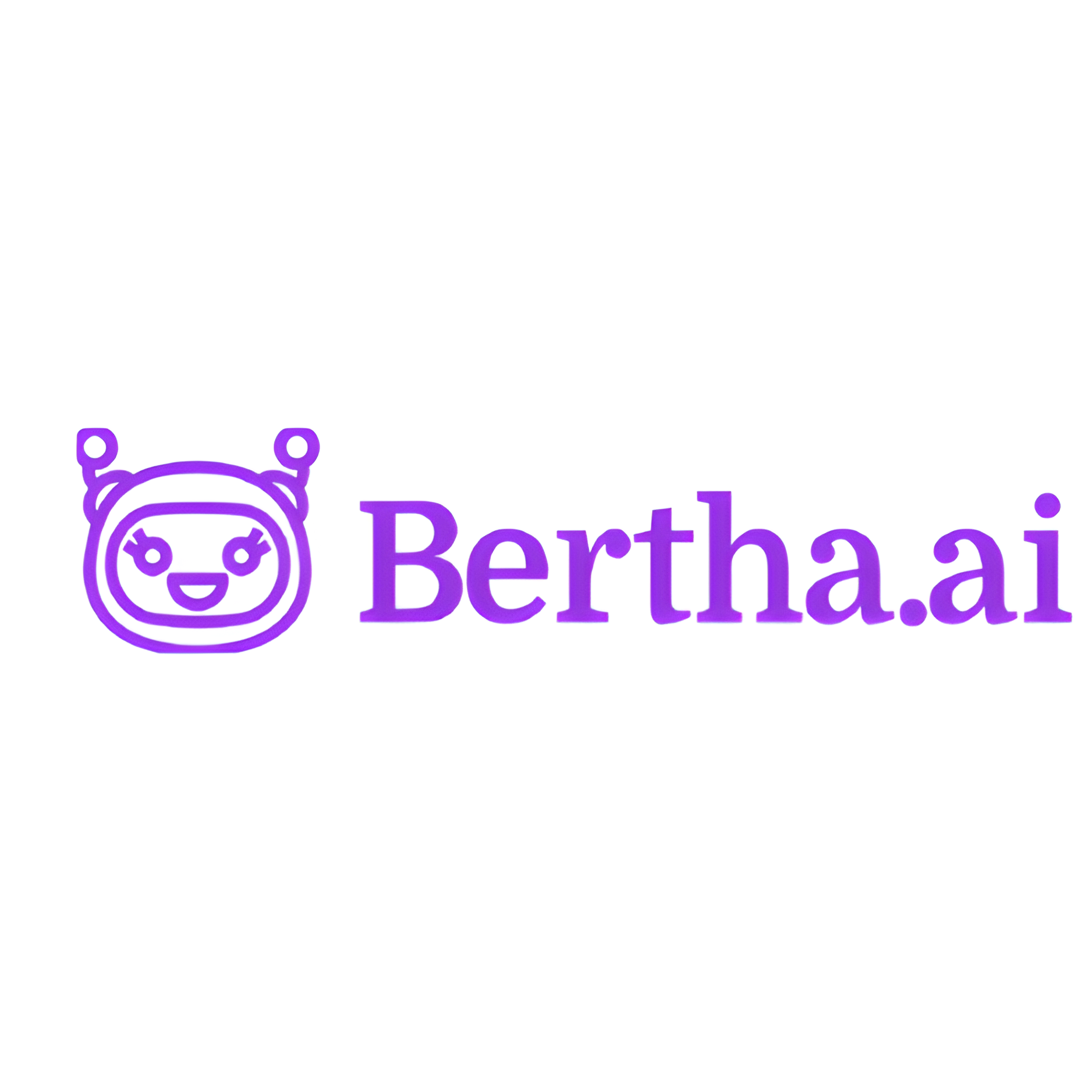Overview
Aithor is an innovative AI-powered content creation platform designed to assist writers in crafting high-quality articles and academic papers. This tool is particularly beneficial for students and professionals seeking a reliable writing companion. Aithor features a suite of specialized tools including the Topic Finder, Outline Creator, Paper Wizard, and AI Co-Writer, each engineered to streamline the writing process and enhance productivity. Users can personalize their writing by selecting from various styles and tones such as formal, informative, persuasive, or casual, making it versatile for different writing needs.
The platform is recognized for its academic writing support, trusted by students from prestigious educational institutions and acknowledged in media outlets. Aithor excels in delivering personalized papers swiftly, offering functionalities like rewriting, expanding, shortening, and tailoring content to specific style and tone requirements. It also includes an AI detection tool and provides academic references to ensure the integrity and quality of the papers.
Additional features like the Essay Editor, Essay Generator, and College Essays Generator further aid users in creating structured and compelling essays. Aithor also offers resources like blog articles, essay examples, and paper summaries to help users refine their writing skills. The website’s FAQ section provides valuable insights into utilizing the tool effectively, addressing common queries and offering tips for optimal content creation.
Key features
- Topic finder: Helps users identify relevant topics based on their interests or assignment requirements, ensuring a focused and pertinent writing approach.
- Outline creator: Assists in structuring articles or papers by generating a clear and coherent outline, which simplifies the writing process.
- Paper wizard: Guides users through the process of writing academic papers, from thesis formulation to conclusion, enhancing content quality.
- AI co-writer: Collaborates interactively with users to draft content, offering suggestions and improvements in real-time for a polished final product.
- Essay generator: Automatically creates complete essays based on specified topics and user inputs, significantly reducing writing time.
- AI detector: Analyzes written content to ensure originality and prevent plagiarism, maintaining academic integrity in submissions.
 Pros
Pros
- Research assistant: Streamlines the gathering of information by providing quick access to data and scholarly articles relevant to the user's topic.
- Style editor: Enhances the readability and style of written content by suggesting language improvements and stylistic changes.
- Reference manager: Automatically organizes and formats citations and bibliographies according to various academic standards.
- Progress tracker: Monitors writing progress and sets reminders to keep users on schedule, helping to meet deadlines efficiently.
- Feedback engine: Offers constructive feedback on writing drafts, highlighting areas for improvement and suggesting actionable changes.
 Cons
Cons
- Narrow topic focus: May limit creative exploration by focusing too narrowly on predefined interests or requirements, potentially stifling broader topic discovery.
- Overly standardized structure: Can overly standardize structure, leading to formulaic writing that lacks individuality and may not fully capture complex ideas.
- Dependency on guided assistance: Might encourage dependency on guided assistance, reducing opportunities for users to develop their own research and writing skills.
- Diminished personal expression: Risks diminishing the writer's unique voice and style, as the AI's suggestions could overpower personal expression in the text.
- Lack of depth: While efficient, it may produce essays that lack depth and personal insight, resulting in content that feels generic and uninspired.
- Missed nuanced plagiarism: Over-reliance on technology for originality checks could overlook nuanced forms of plagiarism not detectable by AI algorithms.















